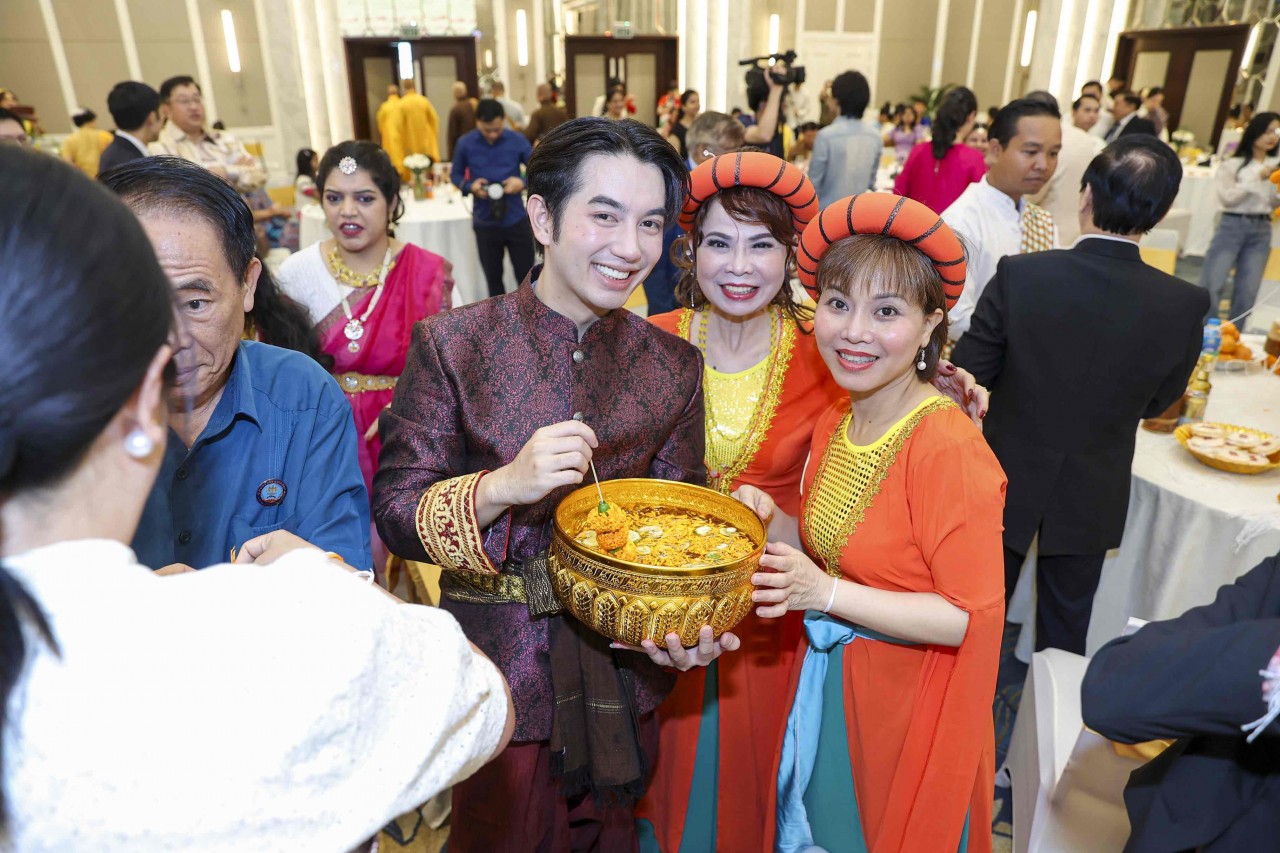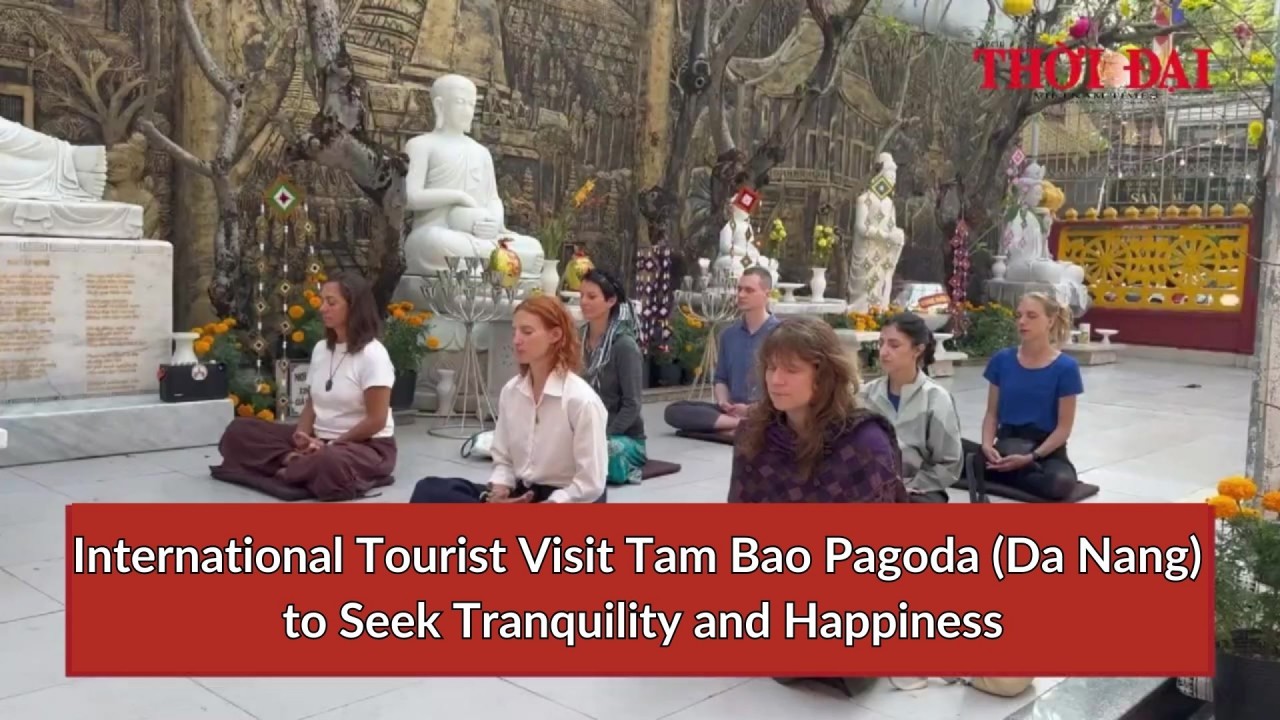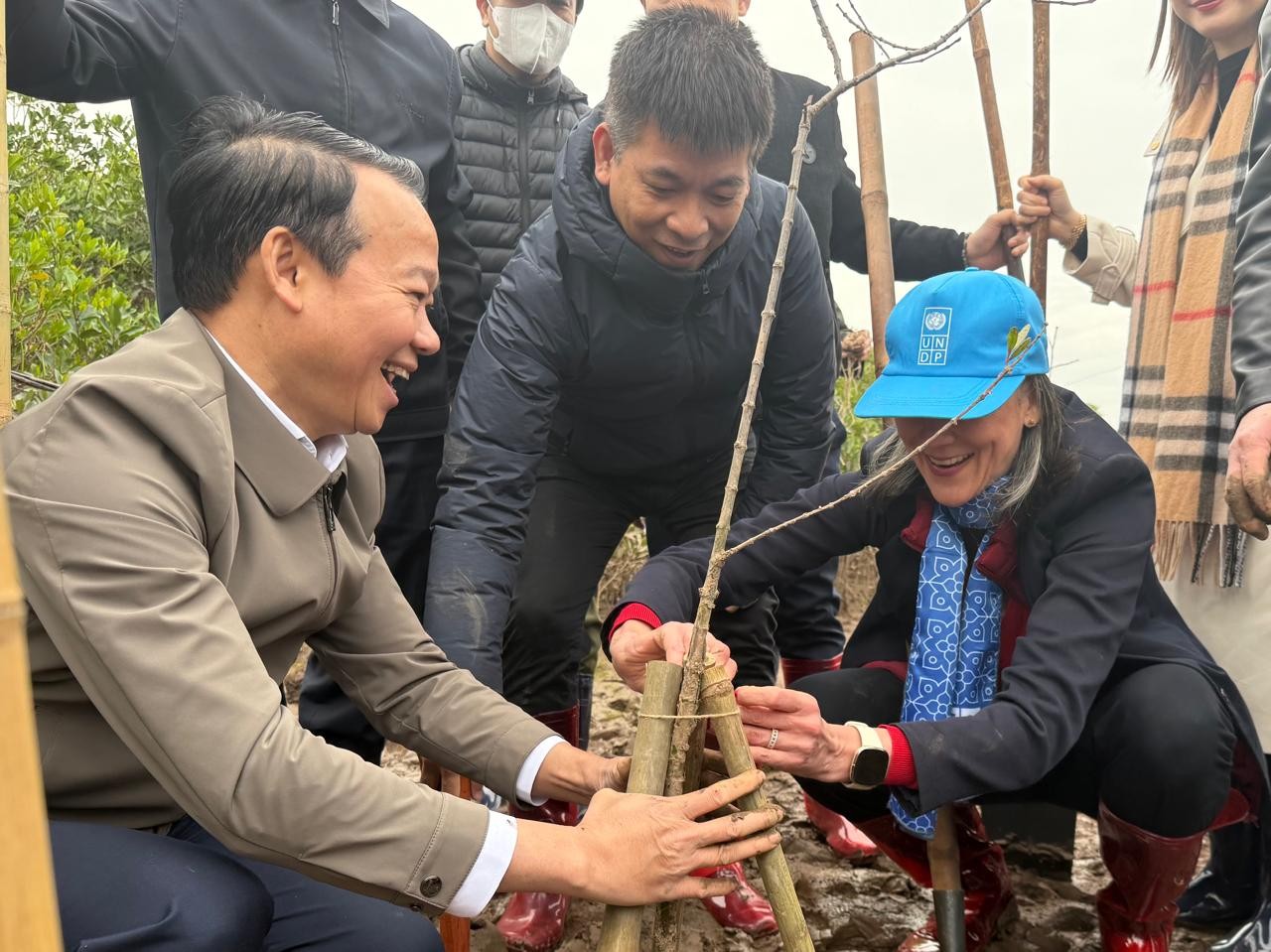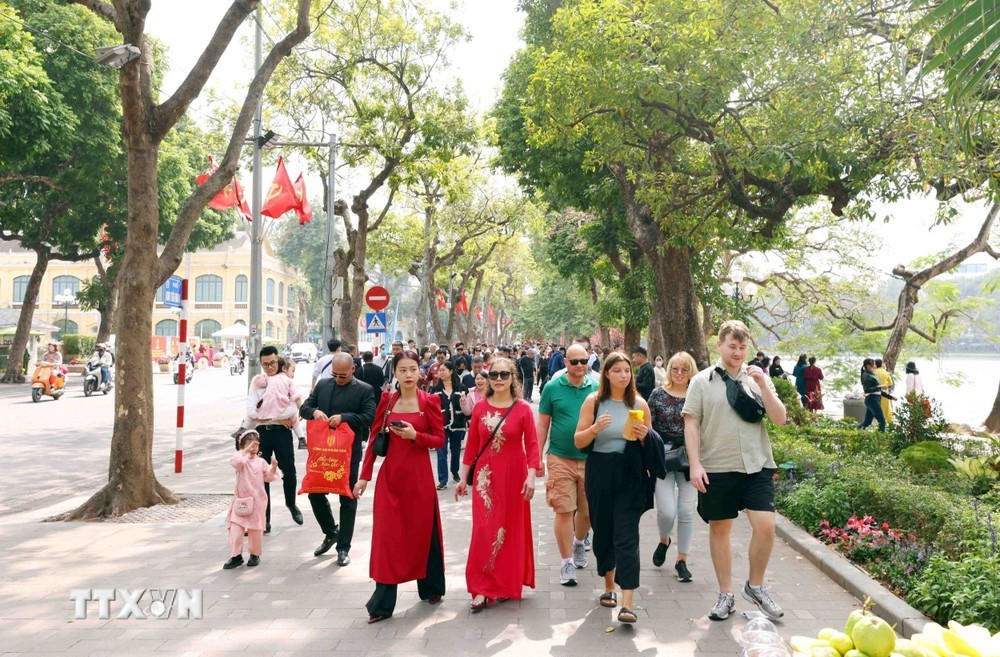State President Attends Traditional New Year Ploughing Festival in Ha Nam
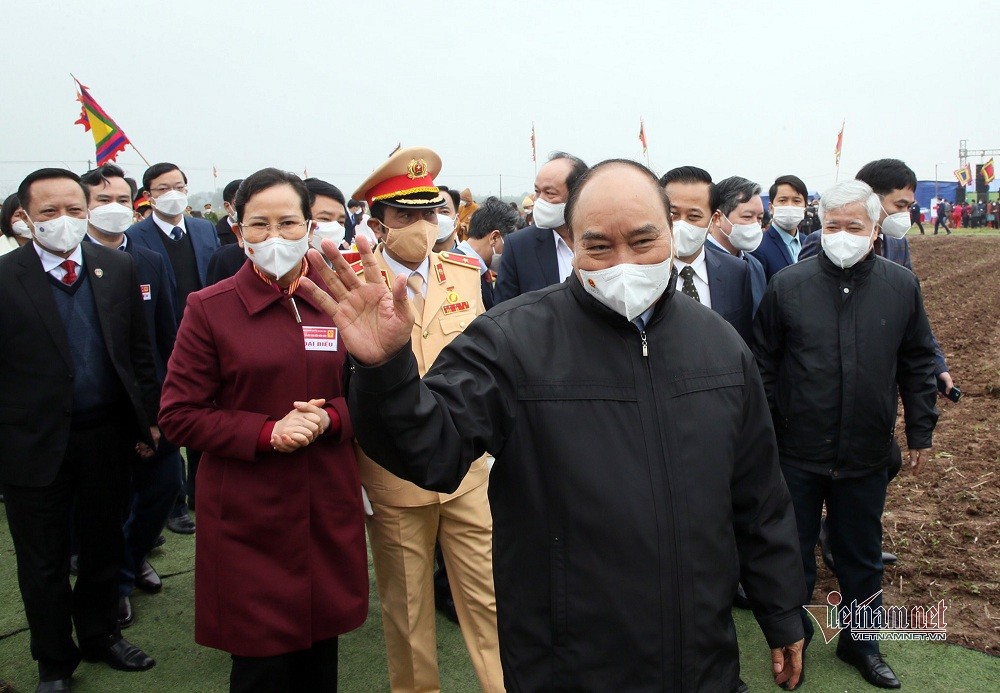 |
| President Nguyen Xuan Phuc and officials attend the traditional ploughing festival wishes for bumper harvests. Photo: Vietnamnet |
The Tich Dien (ploughing) festival officially opened on Feb. 7 in Doi Son commune, Duy Tien district in the Red River Delta province of Ha Nam in the presence of President Nguyen Xuan Phuc, officials and residents.
According to VNA, the event is held every year on the seventh day of the first lunar month to pray for a year of bumper harvests and prosperity.
According to historical records, the festival dates back to 987 during the Le Dynasty when King Le Dai Hanh decided to plough a field in Doi Son commune, Duy Tien district in now Ha Nam province to encourage rice cultivation.
The festival features the procession of the memorial tablet of King Le Dai Hanh from Long Doi Son Pagoda to the foot of Doi Mountain, where it merges with the processions of the local tutelary god and the founder of the Doi Tam drum making craft. The joint procession then moves to the paddy area believed to be the venue of the first Tich dien ceremony so as to carry out rituals praying to the Agricultural God for bumper harvests and prosperity.
The practice became an annual tradition observed through many dynasties before falling into oblivion under the reign of King Khai Dinh of the Nguyen Dynasty.
After a long time of interruption, the festival was restored in 2009 and has been held annually since then.
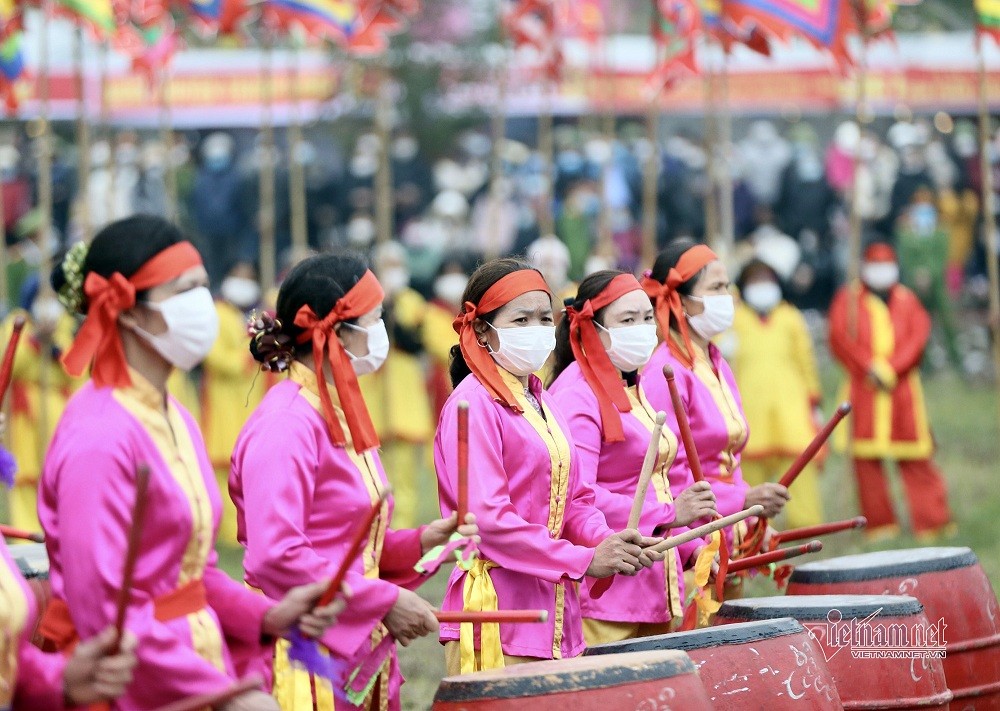 |
| Rituals held within the festival include the procession of a huge drum and memorial tablet of King Le Dai Hanh. Photo: Vietnamnet |
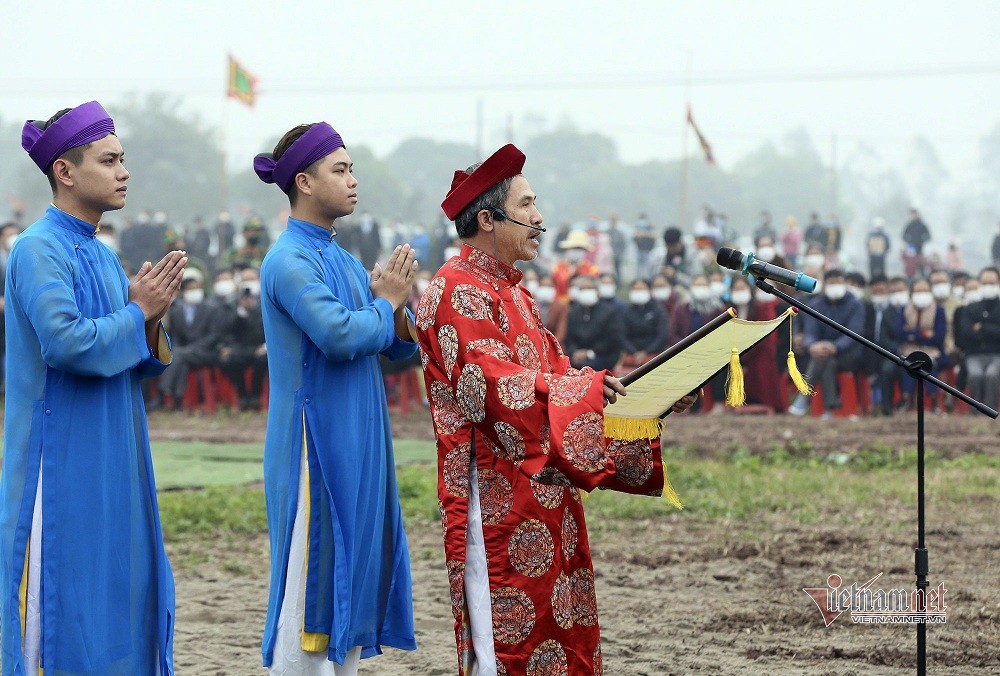 |
| The first Tich dien ceremony of Vietnam was organised at the foot of Doi Mountain by King Le Dai Hanh in the spring of 987. This ceremony has become a tradition practiced in every spring since then. Photo: Vietnamnet |
Rituals held within the festival include the procession of a huge drum and memorial tablet of King Le Dai Hanh. The procession then proceeds to the field where the king ploughed.
This is followed by a ceremony to pay homage to the God of Agriculture to pray for a high-yield season and prosperity.
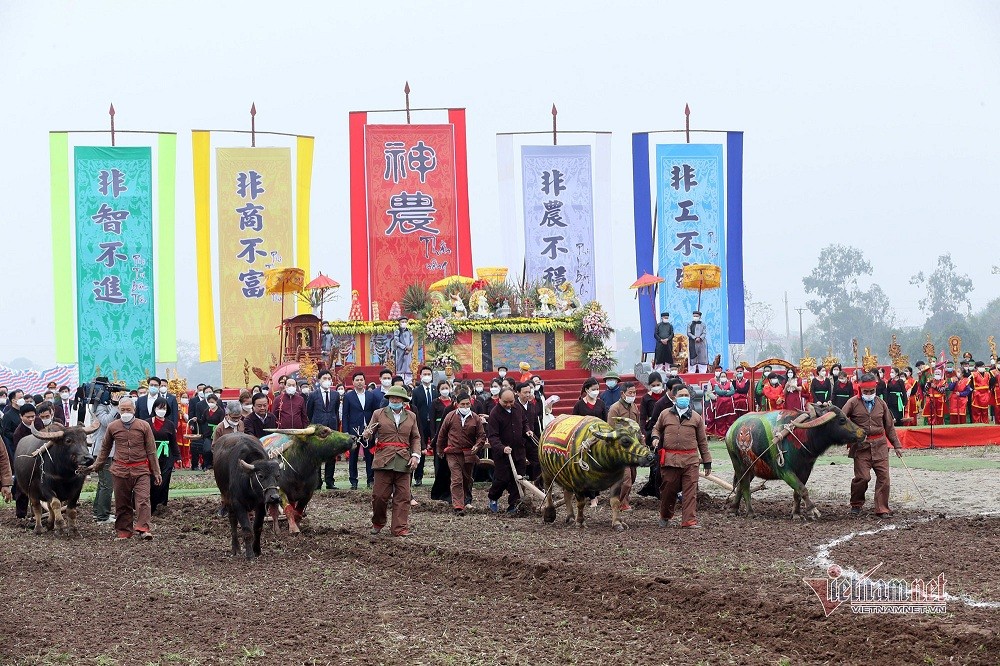 |
| The procession then proceeds to the field where the king ploughed. Photo: Vietnamnet |
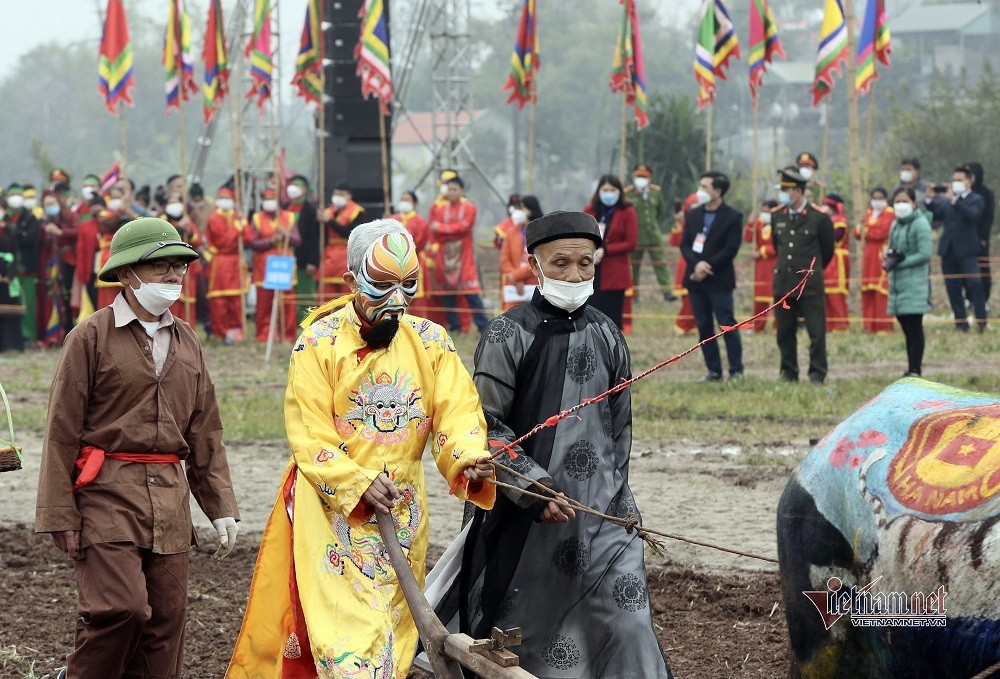 |
| An elderly farmer dressed in a royal robe plays the role of King Le Dai Hanh to plough the field at the festival. Photo: Vietnamnet |
A respected elderly farmer representing the locals plays the role of King Le Dai Hanh to pray to ancestors and the god of farming. The farmer, dressed in a nine-dragon hat and royal robe, then descends to the field to plough. He is followed by a crowd throwing green pea, peanut and rice seeds.
Several activities are held during the festival, including dragon dance, drum performances, and buffalo decoration, among others.
On this occasion, 200 gift packages also have been presented to needy people in the province.
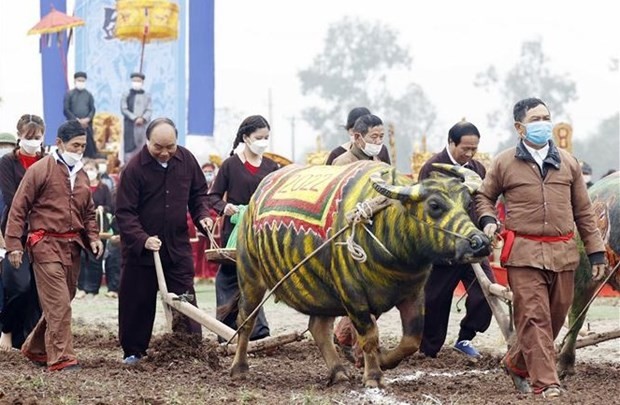 |
| President takes part in the ploughing ritual at the Tich dien festival. Photo: VNA |
In his remarks, Phuc stressed that given natural disasters and diseases, particularly the Covid-19 pandemic, the agricultural and rural sector has helped ensure food security, create a foundation for social stability, and contribute to Vietnam’s international integration, export, and prestige promotion.
Hailing the meaningful message of the Tich Dien festival, the President stressed that the Party and State always encourage the development of agriculture in the cause of national construction and protection.
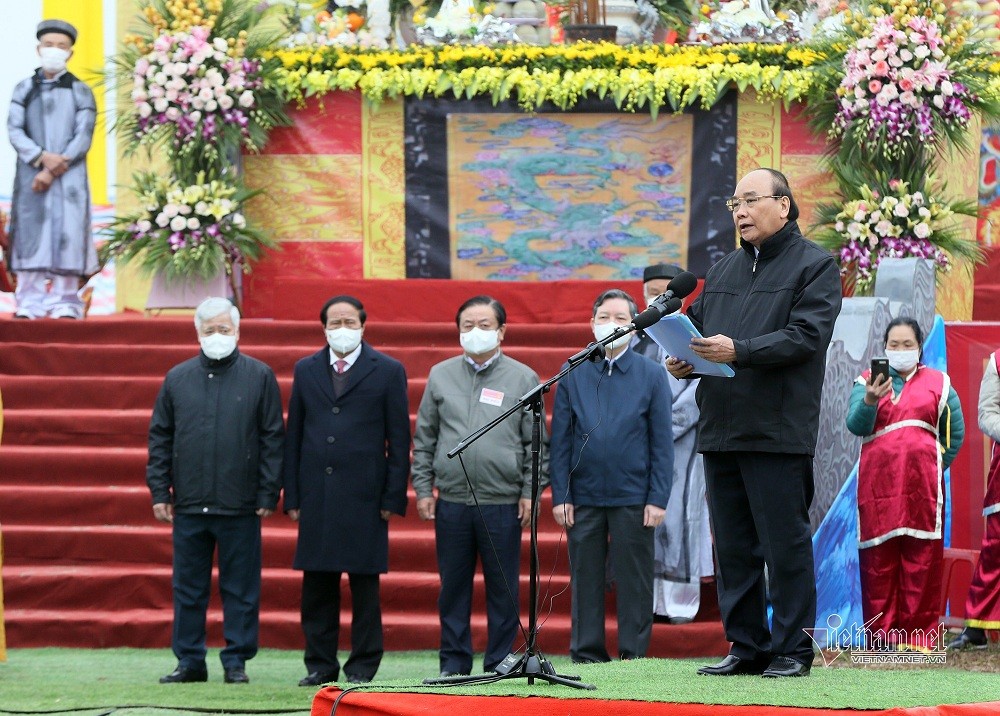 |
| President Nguyen Xuan Phuc highlighted the significance of the festival, saying that the annual event has become a tradition in the locality’s cultural life, which was recognised as an intangible cultural heritage of the nation. Photo: Vietnamnet |
Highlighting significant changes in Vietnam’s rural areas after more than a decade of implementing the new-style rural building program, Phuc lauded progress recorded in Ha Nam that has raised the local living standards and ensured social welfare and security.
He requested that the authorities and people press ahead with the transition from agricultural production to the agricultural economy, which prioritizes the value and output of a number of key products.
All resources ought to be mobilized for farming and rural growth, while greater attention should be paid to the application and transfer of scientific and technological advances toward the formation of a smart agricultural sector, the State leader noted.
He recommended all-level administrations and sectors work to capitalize on international markets on the basis of Vietnam’s 15 existing free trade agreements (FTA), including the EU-Vietnam FTA, the Regional Comprehensive Economic Partnership (RCEP), and the Comprehensive and Progressive Agreement for Trans-Pacific Partnership (CPTPP).
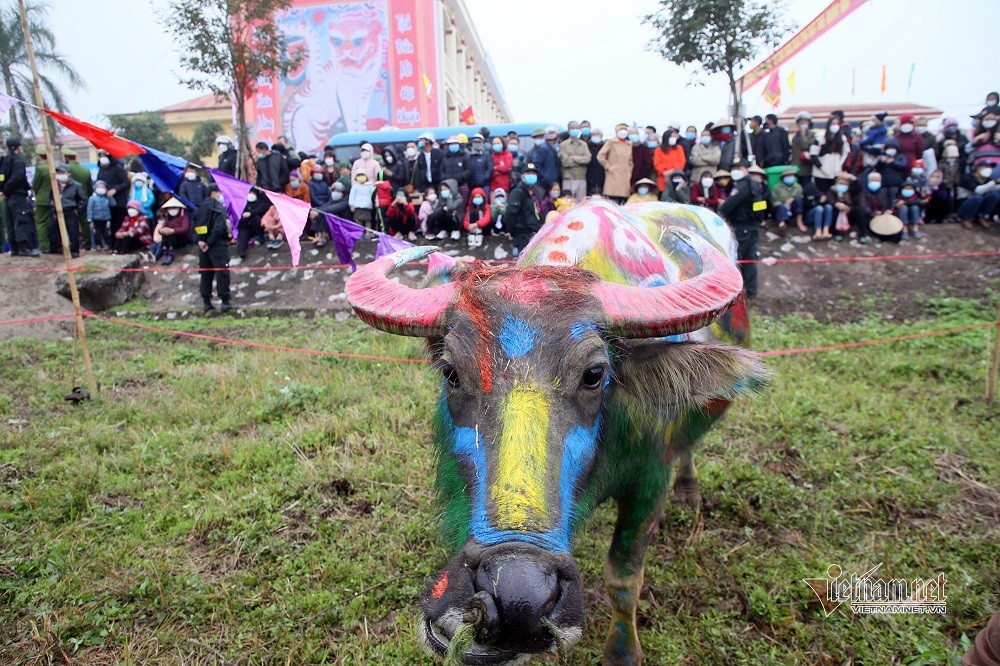 |
| A buffalo painted for the Doi Son Tich Dien (ploughing) Festival, a highlight of Ha Nam tourism, which also aims to encourage farmers to develop agricultural production and promote the building of new-style rural areas. Photo: Vietnamnet |
The Tich Dien festival features the importance of agriculture and the role of farmers and contributes to preserving and upholding the cultural values of the locality.
It is also an activity to introduce Ha Nam’s images and tourism potential to domestic and foreign visitors and overseas Vietnamese, thus promoting the province’s socio-economic development.
Vietnam has about 8,000 festivals each year. Of which, nearly 90% are traditional festivals, 6% are religious ones and 4% are historical ones.
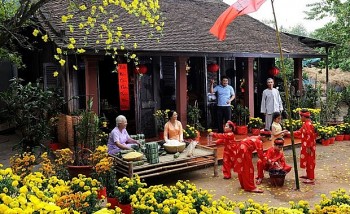 | Vietnam News Today (Feb. 6): Vietnamese Family Tradition in Lunar New Year Festival Vietnam News Today (Feb. 6): Vietnam records 12,160 new Covid cases; Vietnamese family tradition in Lunar New Year festival; Phu Quoc attracts 66,991 visitors throughout ... |
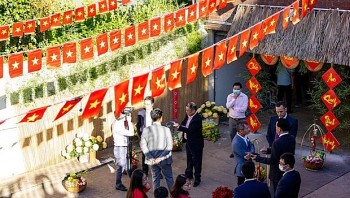 | Tet of Overseas Vietnamese in Australia Although the Covid-19 pandemic is complicated globally, the Tet atmosphere is still present in Vietnamese families in the land of kangaroos. |
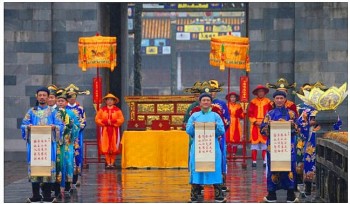 | Hue Festival 2022 Opens with Calendar Distribution Ceremony Hue on New Year's day have re-enacted the ceremony called Lễ Ban Sóc (issuing the new calendar), a common traditional practice in the Nguyen Dynasty ... |
Recommended
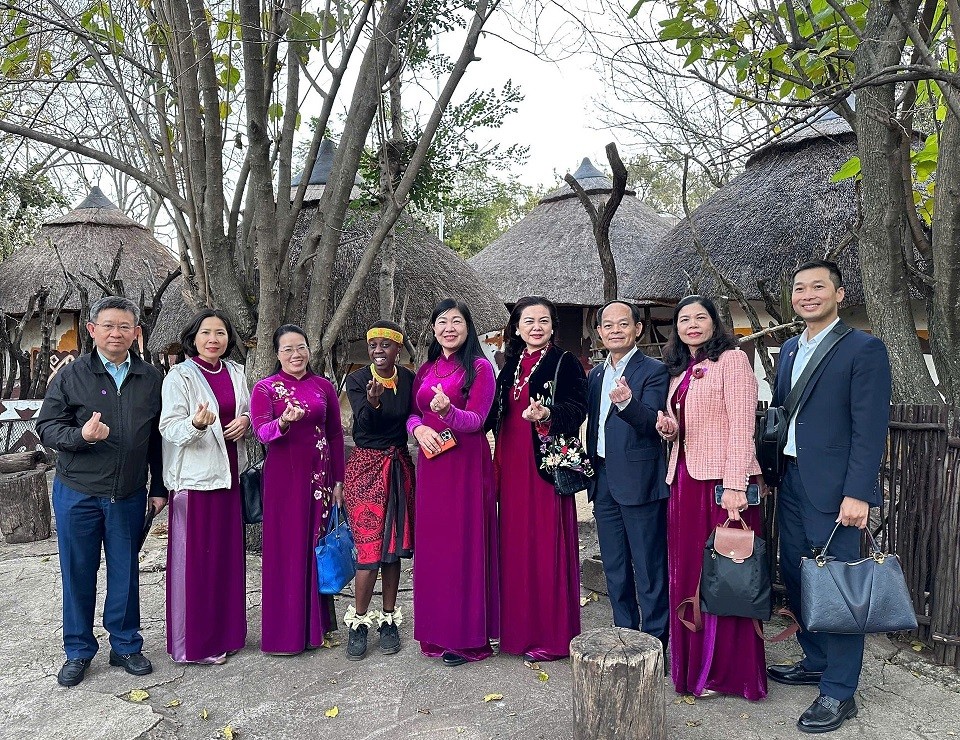 Viet's Home
Viet's Home
Hanoi, South Africa Strengthens People-to-people Exchanges, Expands Multi-sector Cooperation
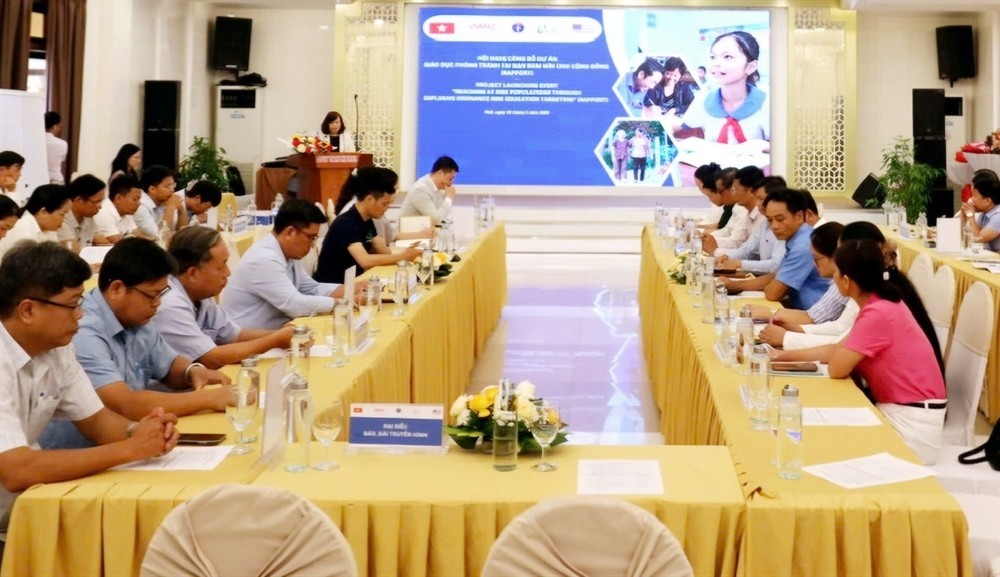 Viet's Home
Viet's Home
Hue City to Raise Awareness on Mine Accident Prevention
 Focus
Focus
Vietnam Leaves Imprints on the World Peacekeeping Map
 Viet's Home
Viet's Home
“Global Vietnamese Singing 2025” - Connecting Hearts Longing for Homeland
Popular article
 Viet's Home
Viet's Home
Vietnam’s People's Public Security Force Actively Contributes to UN Peacekeeping Operations
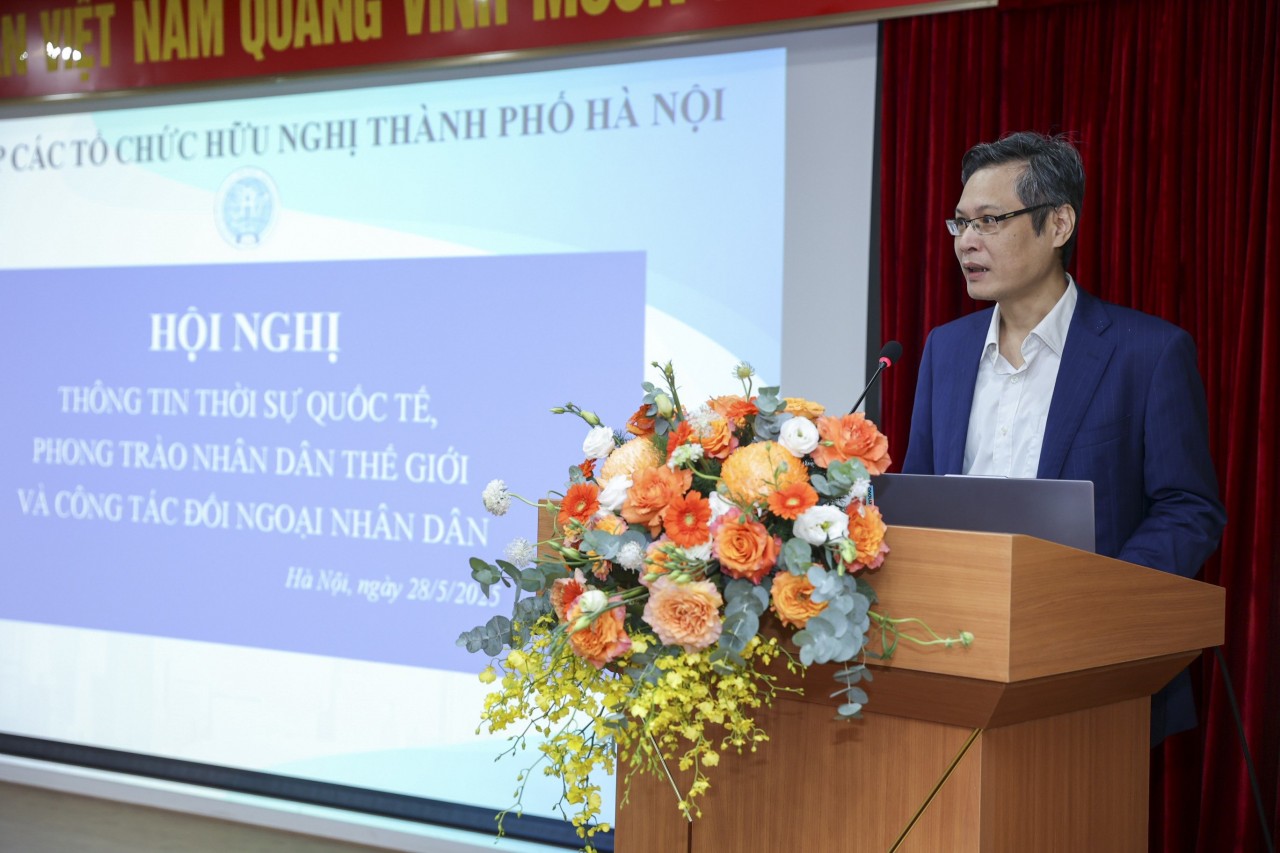 Viet's Home
Viet's Home
HAUFO Enhances Competence of People-to-People Diplomacy Personnel
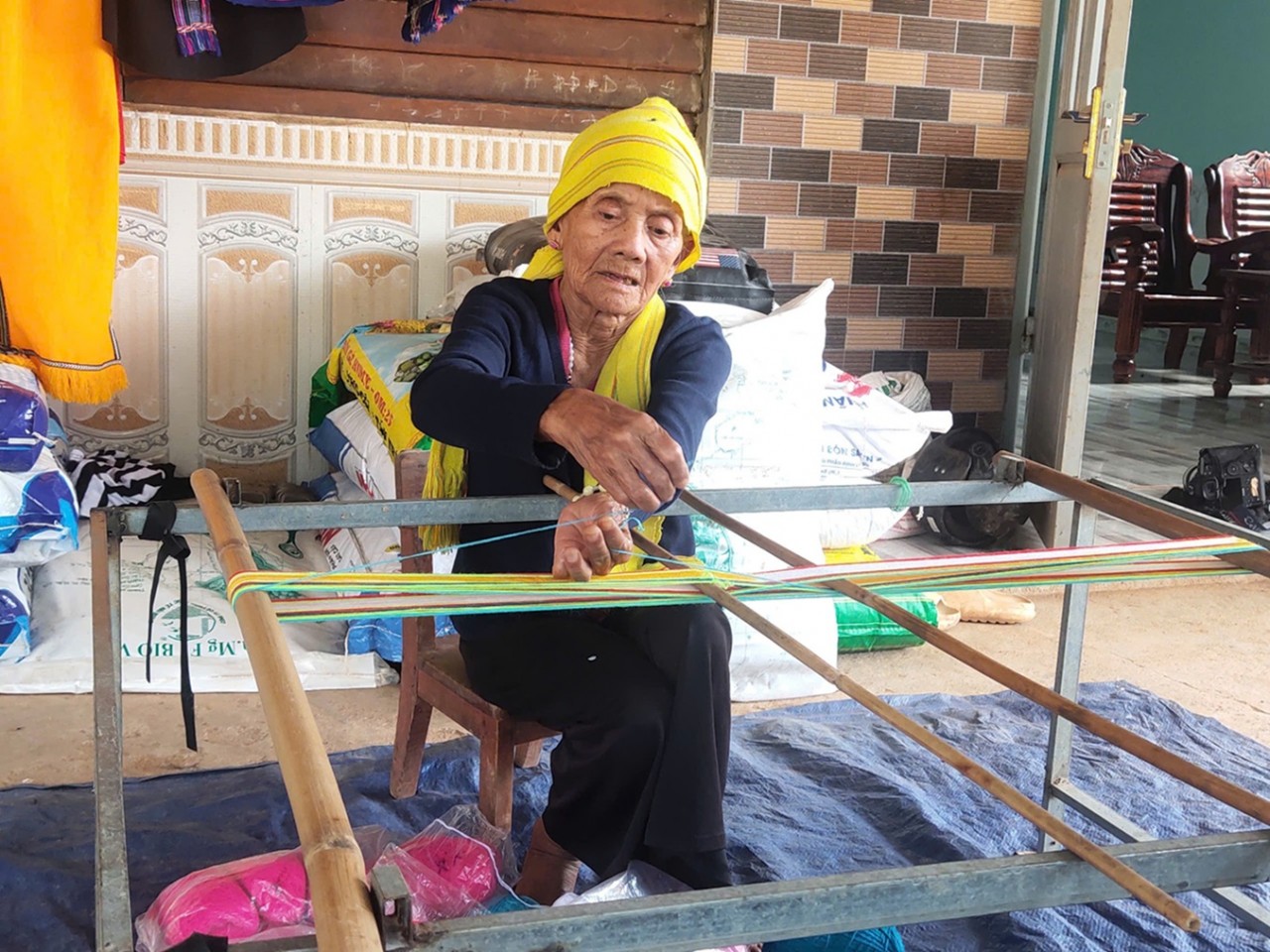 Viet's Home
Viet's Home
Hands that Reserve Da Long Brocade Craft
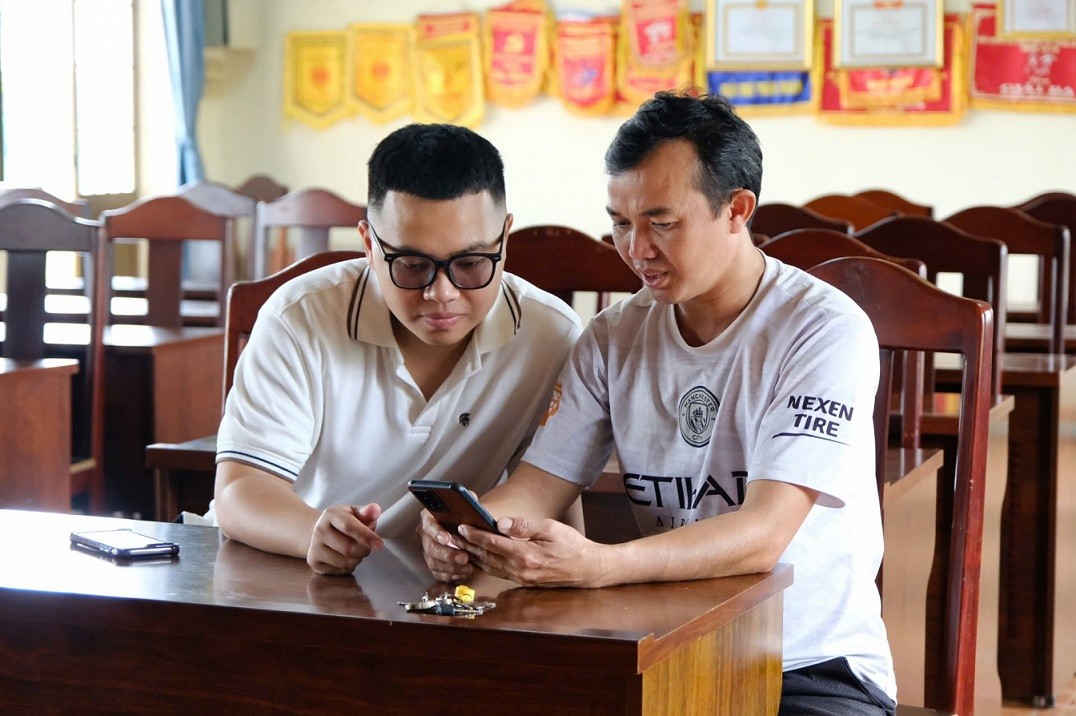 Viet's Home
Viet's Home




